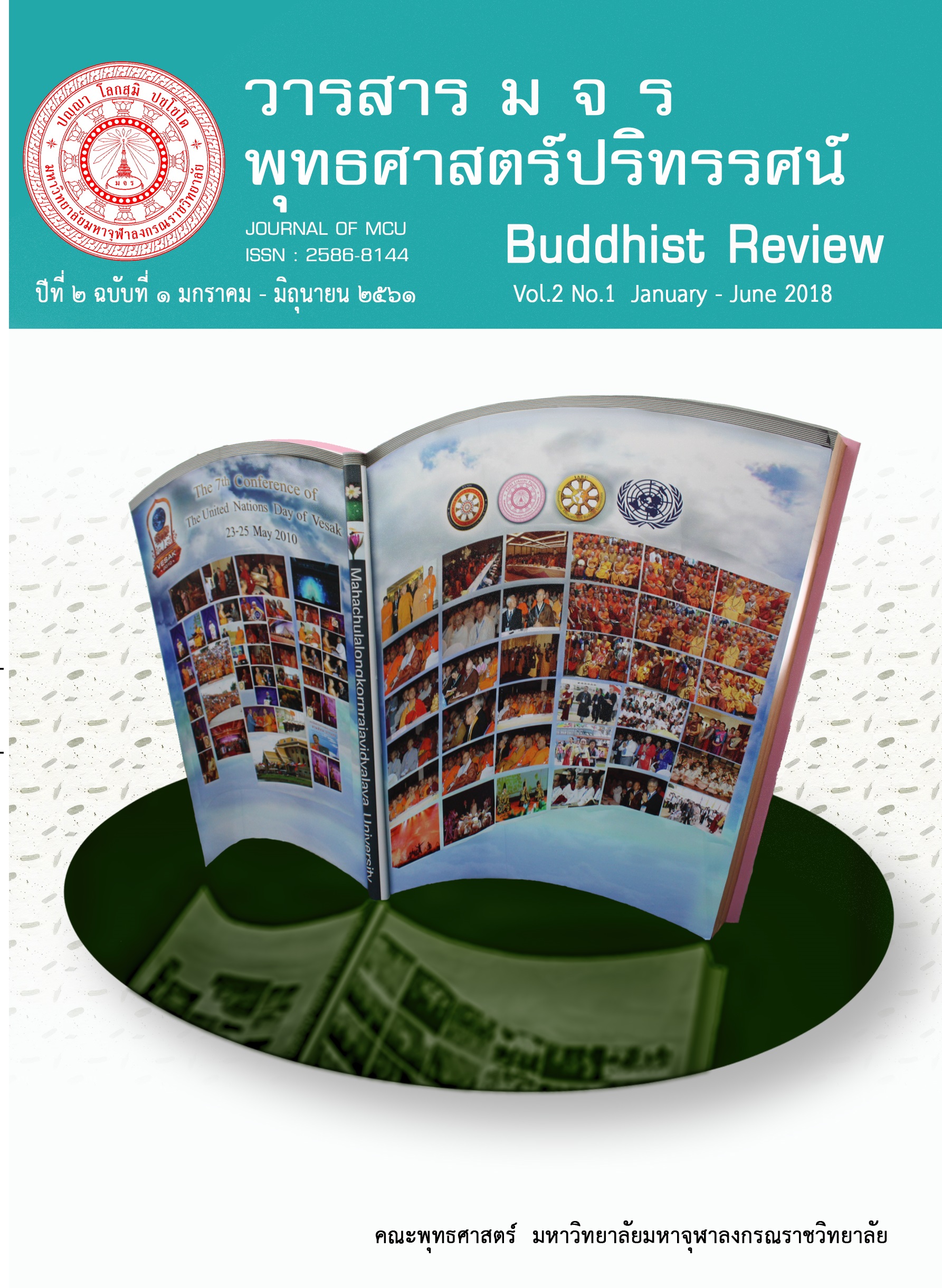The Concept of Nibbāna in Milindapanha
Main Article Content
บทคัดย่อ
Nibbāna is extremely subtle and hard to describe. It is not a place like heaven or paradise. Nibbāna is not annihilation of the self, since the so-called ‘self’ does not exist-though attaining Nibbāna entails the annihilation of egoism. It is blissful, but there is no feeling associated with it. In fact, because there is no feeling in Nibbāna, it is truly peaceful. Only Noble Ones can know what Nibbāna is really like, but we can understand fairly well by inference and constant practice of insight meditation. To get the taste of Nibbāna we should practice constant mindfulness. One who practices constant mindfulness of the body knows the taste of Nibbāna. When we are truly mindful, the mind is almost silent and purified to a great extent from mental defilements. If you can gain good concentration for one or two hours you will be able to understand how blissful Nibbāna would be. Then you will surely long to attain it, and give up worldly ways of thinking, and all worldly ambitions.
Article Details
- บทความที่ได้รับการตีพิมพ์เป็นลิขสิทธิ์ของวารสาร มจร พุทธศาสตร์ปริทรรศน์
- ข้อความใดๆ ที่ปรากฎในบทความที่ได้รับการตีพิมพ์ในวารสาร ถือเป็นความรับผิดชอบของผู้เขียนบทความ และข้อคิดเห็นนั้นไม่ถือว่าเป็นทัศนะและความรับผิดชอบของกองบรรณาธิการวารสาร มจร พุทธศาสตร์ปริทรรศน์
เอกสารอ้างอิง
Rabindra Nath Basu. A Critical Study of The Milindapaha (A Critique of Buddhist Philosophy). Calcutta: Firma Kim Private Limited Press, 1978, p.102-108.
Indianet Zone, Anatta,Buddhsit Philosophy, available from https://www.indianetzone.com/22/nirvana_buddhist_philosophy_buddha..htm accessed 1 March 2011, p.1-3.
Bhkkhu Pesala. The Debate of King Milinda: Buddhist Tradition Series. Delhi: Motilal Banarsidass Publishers Private Limited Press, 1998, p. 89-92.
Bhikkhu Bodhi edited by N.K.G. Mendis. The Questions of King Milinda: An Abrdgement of the Milindapaha. Sri Lanka: Buddhist Publication Society Kandy Press, 2011, p.129-136.
A J Bahma. Philosophy of the Buddha. India: Vikas Publishing House PVT LTD Press, 1982, p. 80.
Dr. P.K.Kaul. Nagsen of Milindapaho. Delhi: Eastern Book Linkers Press, 1996, p.36.
Bhikkhu Dr. Thich Minh Chau of Viet-Nan. Milindapaha and Nāgasenabhikshusātra (A comparative Study). India: Kalika Press, 1964, 16.
T.R.V.Murti. The Central Philosophy of Buddhism, op. cit., George Allen & Unwin Ltd. London, 1960. p. 235.
Theodore Stcherbatsky. The Conception of Buddhist Nirvāna; with Sanskrit Text of Madhyamaka-Kārikā. Delhi: Motilal Banarsidass Publishers Private Limited, 2003. p. 96.
Nalinaksha Dutt. Mahayana Buddhism. Dehil: Indological Book House, 1973. p. 251.


